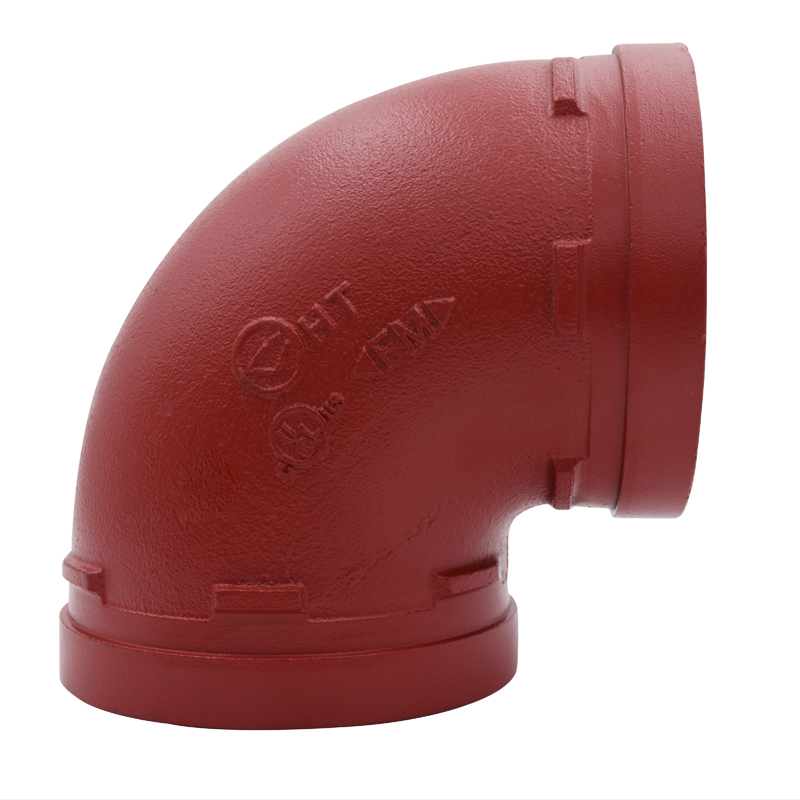In chemical processing plants, 90° grooved elbows may have specific size variations based on the requirements of the application, the type of piping system, and the chemicals being processed.
Common size variations for 90° grooved elbows used in chemical processing plants include:
- Nominal Pipe Size (NPS): Grooved elbows are available in various nominal pipe sizes (NPS), ranging from smaller diameters to larger ones. Common sizes for chemical processing plants may range from NPS 1/2″ to NPS 24″ or larger, depending on the scale and requirements of the plant.
- Pressure Rating: Grooved elbows used in chemical processing plants may have different pressure ratings based on the operating pressure of the system and the type of chemicals being conveyed. Size variations may occur to accommodate different pressure ratings, with thicker walls or larger dimensions required for higher-pressure applications.
- Material Construction: Grooved elbows for chemical processing plants are often constructed from materials that offer corrosion resistance and compatibility with the chemicals being processed. 90° grooved elbow Common materials include ductile iron, stainless steel, and various corrosion-resistant alloys. Size variations may occur based on the material’s properties and compatibility requirements.
- Wall Thickness: The wall thickness of grooved elbows can vary based on the pressure rating, material construction, and specific requirements of the application. Thicker walls may be necessary for higher-pressure or corrosive applications, resulting in size variations to accommodate these requirements.
- End Connections: Grooved elbows may feature grooved ends for easy installation and assembly in piping systems. Size variations may occur based on the size and type of grooved ends, as well as the compatibility with other piping components such as couplings or valves.
- Industry Standards: Grooved elbows used in chemical processing plants may need to comply with industry standards and regulations governing piping systems in chemical plants. Size variations may occur to meet these standards, ensuring compatibility and compliance with regulatory requirements.
Overall, the size variations for 90° grooved elbows used in chemical processing plants are influenced by factors such as nominal pipe size, pressure rating, material construction, wall thickness, end connections, and industry standards. By considering these factors, engineers and plant operators can select the appropriate grooved elbows to meet the specific requirements of their chemical processing applications.
